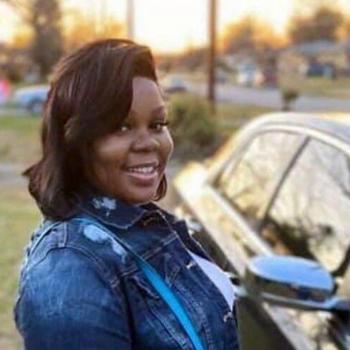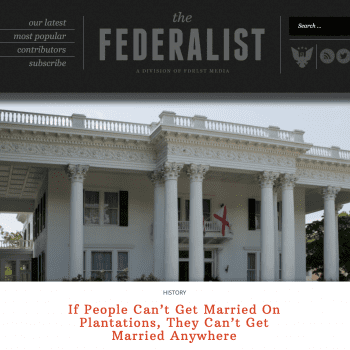Yesterday morning I posted about atheism and Islam, and then went in to work for a few hours. After I finished I read the comments on that post, some of them critical. Then I got on the bus to head home—and in a moment that serendipitous, I found myself sitting next to an olive-skinned woman wearing hijab. I live in a university town, so this is a common sight. Coming right after reading comments arguing that Islam inherently oppresses women, it felt refreshing, somehow. She had a stroller with a little boy about Bobby’s age, so I struck up conversation, as I usually do with women who have children my children’s ages.
“How old is he?” I asked, gesturing to her son.
“Eighteen months,” she responded.
“My little boy is two,” I said.
And with that, we began to chat. She was interested in my studies, I was interested in her country of origin—Morocco—and we were both interested in talking about our children and our future plans. I learned that she was staying at home with her little boy while her husband is completing his Ph.D. She had finished her master’s degree last year, she told me.
We talked about challenges getting our children to sleep—I gave her some advice on when to move her little boy from his crib to a toddler bed—and whether we wanted more children. She said she wasn’t sure if she wanted another child, and that while she was staying at home with her son for a time while he was little, she couldn’t wait to go back to work, as being at home was hard. I laughed and said I didn’t think I was cut out to be a stay-at-home mother either. She explained that she’d been headed to the library with her son to get him out of the house, but that when the weather changed she’d decided to head back home.
And we talked about Morocco. She told me about the ways it’s modernizing, and about the differences between the city—where children go to school and birth rates have fallen—and the countryside—where school attendance was growing but children were still expected to help out on family farms and family size was still high. I told her that in the U.S., birth rates had stayed higher in the countryside as well, and that child labor laws originally excluded farm labor. We both found the comparison fascinating.
And then she got off the bus, stroller and son and all.
Coming right after reading comments insisting that all Islam oppresses women and is diametrically opposed to the West, it was nice to be reminded, once again, that so many of our stereotypes about Muslim women are just that—stereotypes. I mean, think about it. You can tell very little about a woman based only on knowing she is Christian. She might be politically progressive or politically conservative. She might support gay rights or she might not. She may emphasize sins and hell, or love and social justice, or all sorts of things in between. She may believe in female submission or she may be a feminist. The same is true of Islam. Yes, some women live the stereotypes, but many others do not. Our western understanding of the relation between Islam and women is overly simplistic.
Can Christianity be used to oppress women? Absolutely. Can Islam be used to oppress women? Once again, absolutely. But women can also simply exist within these religious traditions, or wield these traditions as tools of liberation. I don’t know where the woman I met on the bus yesterday falls on this spectrum. She had a master’s degree and wore hijab. She adored her son and can’t wait to go back to work. These things I know.
I know more things, too. Turkey has had a female prime minister (Tansu Çiller). Indonesia has had a female president (Megawati Sukarnoputri). Pakistan has had a female prime minister (Benazir Bhutto). Bangladesh has had two female prime ministers, who have ruled by turns since 1991 with very little interruption (Khaleda Zia and Sheikh Hasina). The U.S. has yet to have a female president. Malala Yousufzai, known across the globe for standing up for girls’ right to an education against the guns of the Taliban, is Muslim and draws strength from her faith. “The Taliban think we are not Muslims, but we are,” she said in 2012. “We believe in God more than they do, and we trust him to protect us . . . . Islam says that it is not only each child’s right to get education, rather it is their duty and responsibility.”
Perhaps things aren’t as simplistic as the stereotypes make them look.
[edited for clarity]
***Addendum***
I found this comment by reader mythbri especially pertinent:
And it’s not criticism of institutionalized and organized religion that’s the problem, especially if that religion enjoys governmental power and influence—when there is no way for religion to be in any way separated from public life. This deserves to be criticized. It must be criticized. It must change, wherever it exists, to provide a more just and fair society for all of its citizens.
The problem is people who think that the woman Libby Anne met on the bus is currently the greatest threat to Western society. It’s people who think that her husband and little boy need extra attention at the TSA security screening when they want to go visit their family in Morocco. It’s people telling this educated mother with a master’s degree, with career ambitions, that she is oppressed by a visual expression of her faith. It’s people who would tell this young family that simply existing while Muslim means that they condone terrorist attacks carried out by Muslim extremists. It’s people breaking into and setting fire to mosques.
There is a difference between criticism of Islam and Islamophobia that many people don’t seem to be able to distinguish because of the successful campaign of justification for illegitimate war on Muslim countries. Many of the proponents of this kind of war claim that they’re just criticizing Islam, when the results of the actions they’re calling for result in oppression and hardship—even death—of people like this young hijabi, her husband, and her 18-month-old son.













